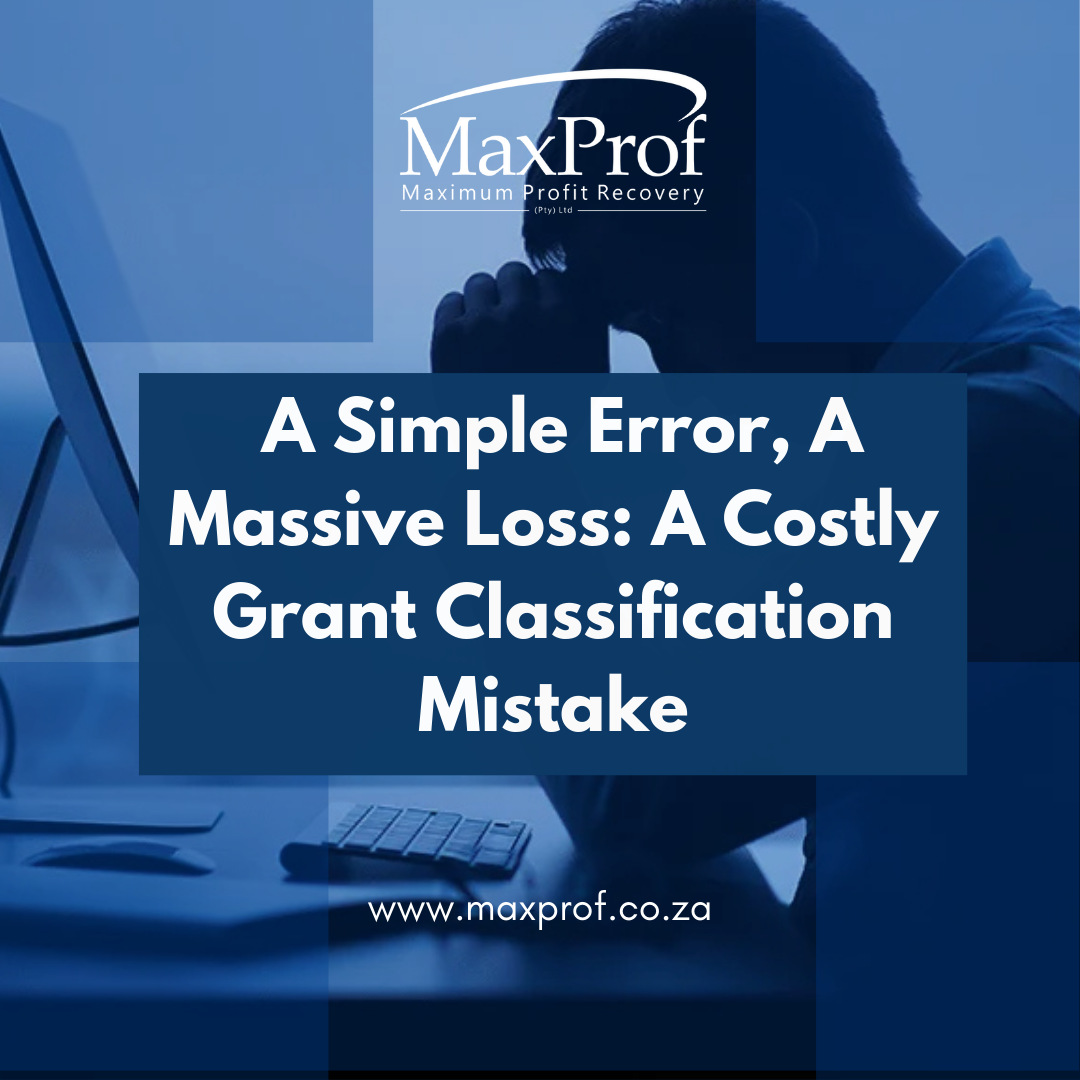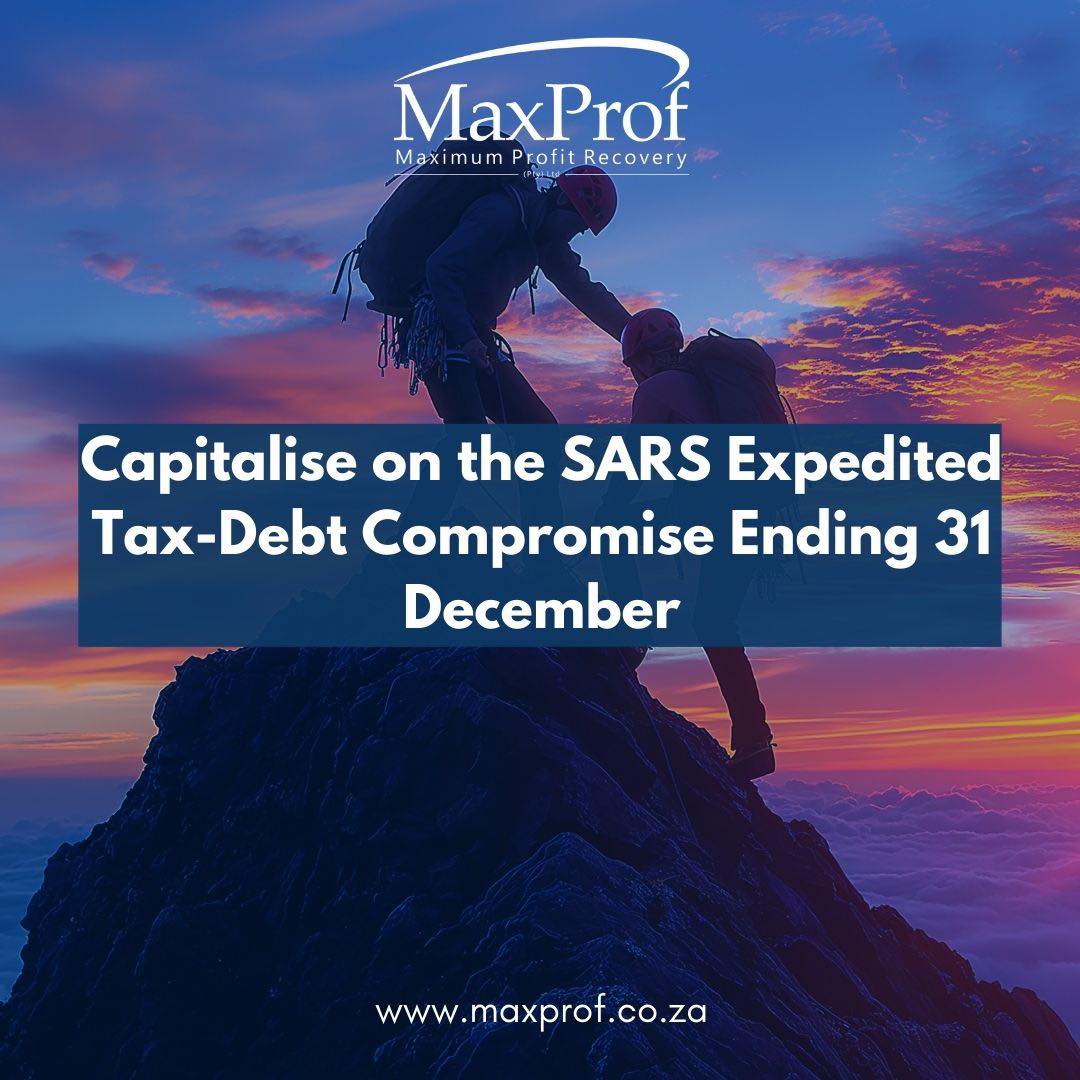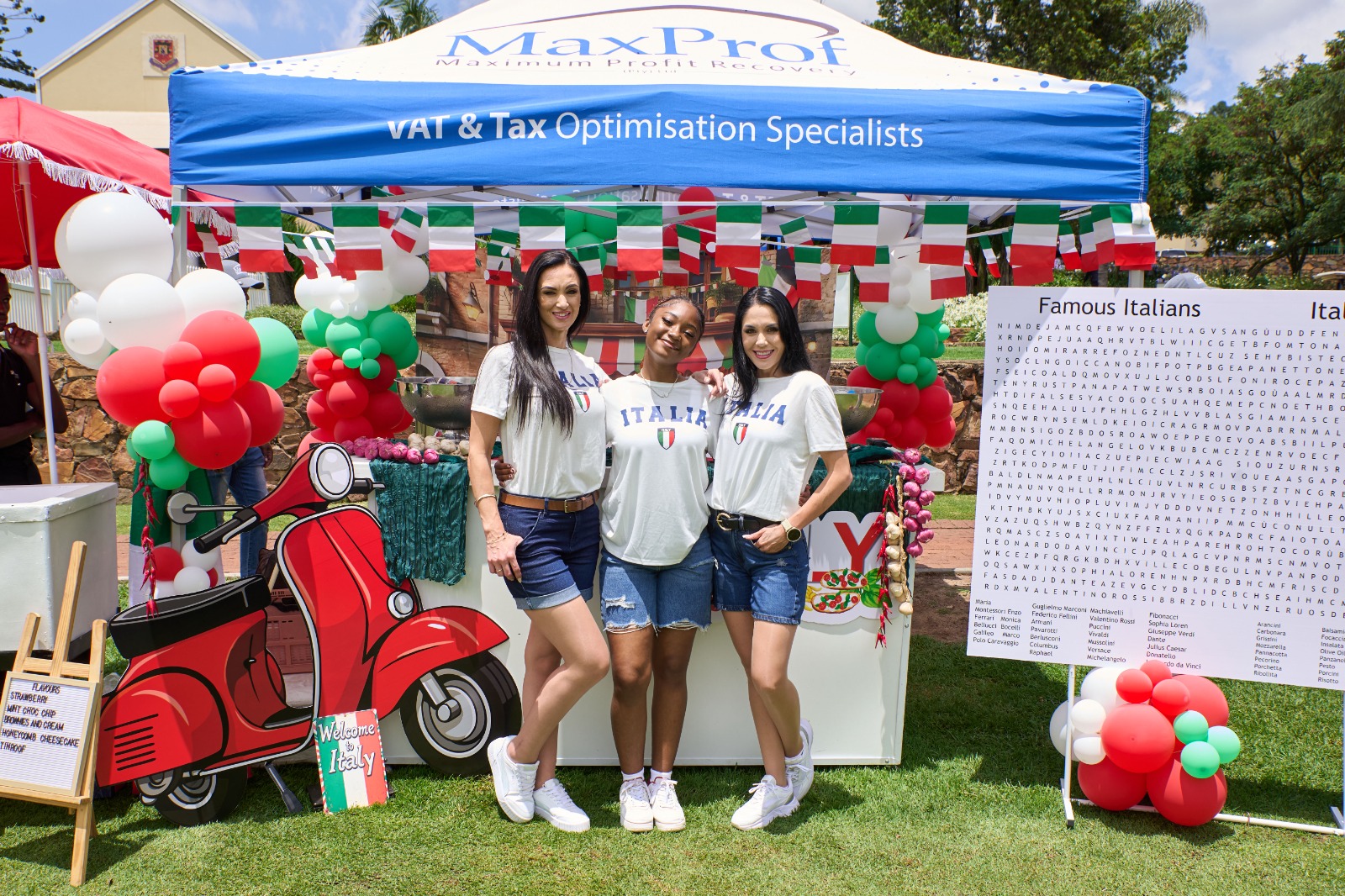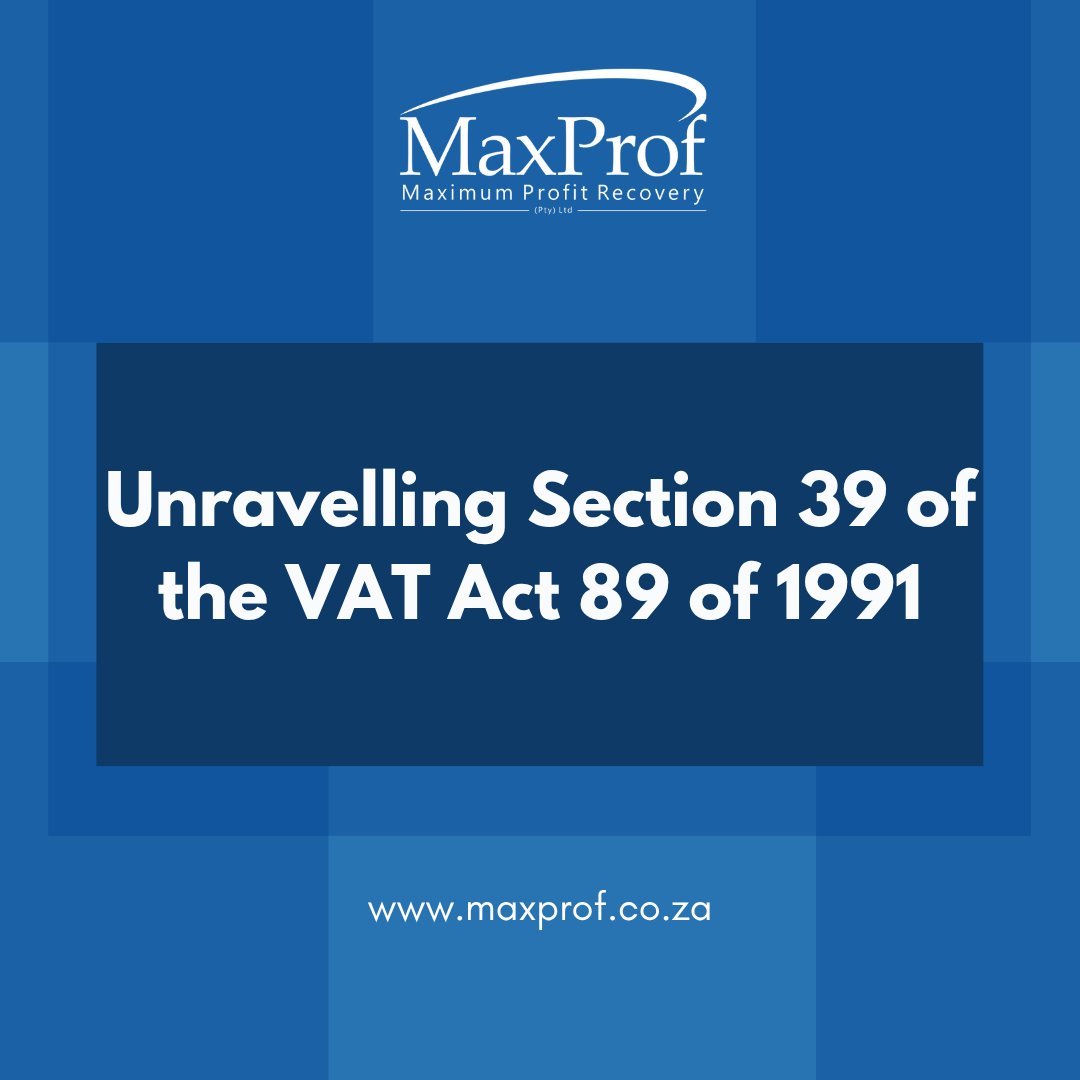Written by Marlon James, MaxProf Senior Auditor
Understanding VAT and Transfer Duty in Property Transactions
When purchasing a property, it is crucial to ask the right questions to determine whether Value-Added Tax (VAT) or transfer duty applies. The applicable tax depends on whether the seller is a VAT-registered vendor or not.
VAT vs. Transfer Duty: What's the Difference?
- VAT (Value-Added Tax) applies when the seller is a registered VAT vendor and the property is part of their taxable supplies.
- Transfer Duty is payable when the seller is not a VAT vendor and is levied on the sale of immovable property.
When Is VAT Payable on Property?
- If the seller is a VAT vendor, VAT is included in the purchase price and must be paid by the seller.
- If the seller is not a VAT vendor, transfer duty applies, and the buyer is responsible for the tax.
- VAT is only applicable if the property forms part of the seller’s taxable supplies or income-generating assets.
Example of VAT in Property Transactions
- If a registered VAT vendor sells a property worth R2,300,000, the price includes VAT at 15%.
- If the seller is not VAT-registered, the buyer pays transfer duty of R41,625 on a property worth R2,000,000 (as per SARS’ transfer duty rates).
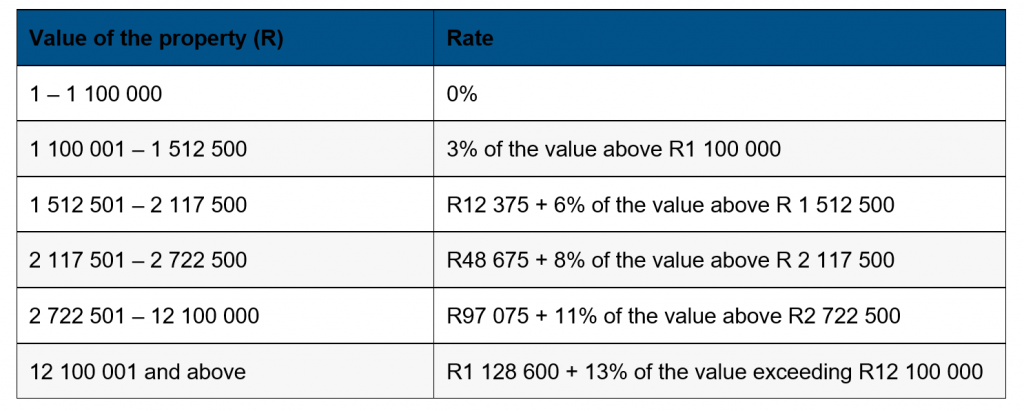
What Is Transfer Duty and When Does It Apply?
Transfer duty is a tax levied by SARS on property transactions where VAT is not applicable.
Key Transfer Duty Considerations
- Payable by the buyer when purchasing property from a non-VAT vendor.
- Transfer duty rates are based on the property value.
- Applies to residential property purchases, including share block companies.
What Happens If the Property Is a Going Concern?
A going concern refers to a business that is sold as a functioning entity, including its assets and property.
VAT on Going Concerns
- Both buyer and seller must be VAT-registered.
- VAT is charged at a 0% rate if the business is a qualifying enterprise.
- A clause should be included in the contract confirming the zero-rated VAT status under Section 11(1)(e) of the VAT Act.
Example: If a VAT-registered company sells a rental property business as a going concern, the buyer pays no VAT or transfer duty, provided all qualifying criteria are met.
VAT vs. Transfer Duty on Residential Properties
- If a residential property company sells shares in a company owning real estate, transfer duty applies.
- If the seller is VAT-registered, VAT is payable instead of transfer duty.
- If more than 50% of the company’s total asset value is in residential property, the sale is treated as a property transaction for tax purposes.
Conclusion
Before purchasing a property, it is essential to determine:
- Is the seller a VAT vendor?
- Does the property form part of their taxable supplies?
- Is the transaction subject to VAT or transfer duty?
A clear understanding of VAT and transfer duty will help buyers and sellers avoid unexpected costs and ensure compliance with SARS regulations.
